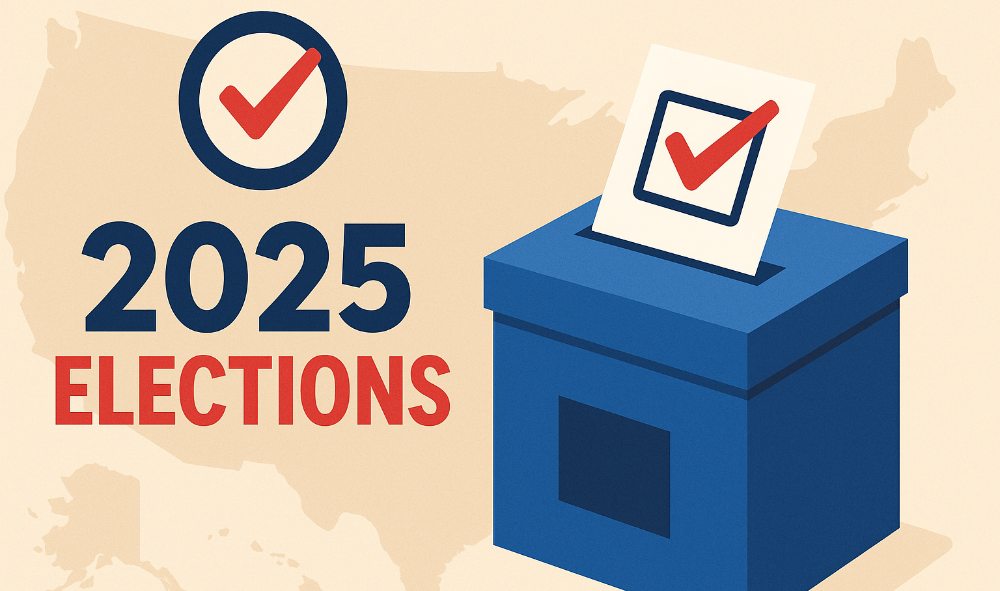When the Democrats needed a friend, they found one in Donald Trump. On ballots from one coast to the other, winners had the anti-Trump mood to thank for their victories.
That held true in Seattle and Puget Sound politics. The contested local races could almost be calibrated by their distance from Trump’s objectionable policies. In each race where the choices were liberal and ultra-liberal, the contender with the more progressive platform won.
One possible outlier was the Seattle mayor’s race where votes tabulated in early returns appeared to give Mayor Bruce Harrell a narrow win over a more liberal but decidedly inexperienced challenger. Would-be mayor Katie Wilson’s attempt to ride the Mamdani bandwagon seemed to be stalling. Can she overcome an eight-point difference to come from behind? There’s the likelihood that she will gain when later ballots are tabulated given the predictable late surge of progressive votes. But a 11,000-vote deficit may be insurmountable.
To date Harrell has led something of a charmed electoral life. As far back as his first win of a city council seat in 2007, he had seemed destined to fall behind an opponent. But with only days away from voting, his opponent Venus Vela’quez was picked up for a suspected DUI. In a later jury trial, Vela’quez was judged not guilty, but the earlier blot on her reputation arguably gave Harrell a 20-point victory. In his mayoral race in 2021, Harrell was similarly fortunate, managing to best Council President Lorena Gonzalez, his labor-endorsed opponent.
This election, Harrell suffered bad press from a couple of investigative stories — one about his questionable use of city funds when traveling and another about generously paid consultants. What save him was that the “gotcha stories” didn’t surface until the 11th hour. The timing worked for him since many had already cast their ballots. If Harrell’s initial win stands, he will have ended Seattle’s electoral curse, the failure of mayors since Greg Nickels to win a second term.
Should he survive the final count, Harrell will have a cluster of promises to keep in his second term. During his campaign, he had vowed to reduce red tape for development projects, improve the supply of housing options, invest in trees, sidewalks and green buildings, speed light rail, ensure public safety, reduce gun violence and – at long last — implement Fort Lawton housing.
If, on the other hand, Katie Wilson manages to overcome Harrell’s early lead, she will confront a daunting mountain of pledges. She said she would build 4,000 units of emergency housing, buy into social housing using $1 billion in bond obligations, enact added tenant friendly rules, expand the city’s paid sick time law, support small businesses and start-ups, improve police accountability, improve safety for walkers and bikers, introduce a program similar to democracy vouchers to subsidize local publications and increase city revenue through such new taxes as a congestion tax, capital gains tax, estate tax and a tax on empty housing units.
Whoever ends up mayor, they will have to partner with the City Council. New to the council are Dionne Foster, a one-time city advisor who defeated Council President Sara Nelson; and Eddie Lin, a housing advocate who took leave from his position as a Seattle city attorney, to run for the District 2 seat. Although the soon to be reconstituted council does not signal a dominant political swing, it will be a governing challenge for the city’s chief executive.
One of the major political challenges facing Seattle government now will be in how to deal with Donald Trump and his belief that this city is “a hellscape.” So, although Trump may have shaped some of our races, he remains an ever constant threat.
Discover more from Post Alley
Subscribe to get the latest posts sent to your email.

Thanks for the election analysis!
Godden writes of a late breaking story about Mayor Harrell’s questionable use of city funds for travel. I read a Publicola story that detailed Harrell’s reimbursements to the city for upgrades to his flights and hotels while on city travel. The story demonstrated that Harrell is wealthy (which we all knew) and was following the rules (good for him). Is that the story Godden referenced?